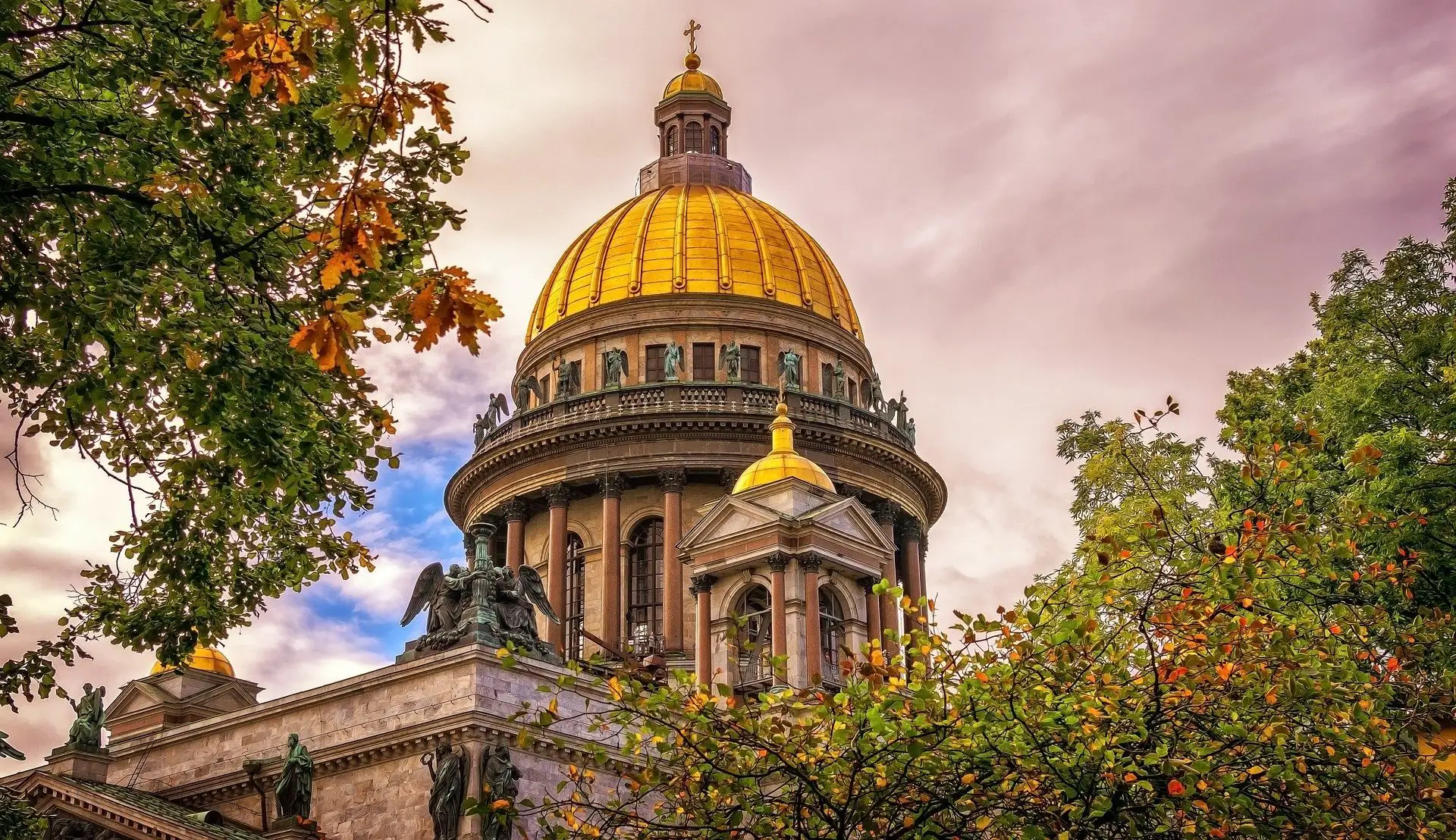Jamie used to live in the United States before moving to St. Petersburg, Russia after studying Russian back in school and university. Check out her story below!
Can you tell us a little bit about yourself and your professional background?
I am an American living in St. Petersburg, teaching English, doing voiceover recordings of lectures online, and dancing Argentine Tango around Russia and Europe. I left the USA at the end of 2012, and have lived in Tallinn, Riga, Berlin, and now, here. Before that, I was working as a professor in theatre, opera, and medical universities in Washington, D.C., a nonprofit manager, and a stage director—as well as a tango dancer.
What made you change your life and come to Russia?
I was an exchange student outside Moscow in high school in 1990, and in college in 1996, and summer of 1997. It was a hard time with little opportunity then. Since returning to Europe, I have visited more than a dozen times for tango. Coming back with a job offer last fall to St. Petersburg was the easiest decision I have ever made. (Having been ready since my first visit to live here.)
Was it difficult to move to Russia and find a job?
I came with a job offer, and the visa still took 2.5 months. Having some friends here in the dance community helps—but basically, you are on your own getting settled outside work. Dancing tango, when not in quarantine anyway, means a party every night if you want it (or 5!). It is lovely to have some structured group or activity or language classes or expat sphere if you come as a 45-year-old single person.
Once you are here, Russia is very socially connected. If you have skills and credentials and speak Russian, there is work. You can buff up your CV and Russian before arriving, if you weren’t lucky enough to have 12 years of study like me from 7th grade to grad school. It really is essential.
What differences can you see between (your country) and Russia when it comes to the work environment?
Socially, in some ways, urban Russians and Americans are similar—social and connective. However, Russians are not so emotionally sensitive and tend to be quite direct, and not understand American politenesses. Also, generally, Europe and Russia have a greater sense of community and its welfare, even when it is inadequate. I like this care people take.
Do you like Russia so far?
I really love St. Petersburg, especially when it is warm and the lilacs are blooming and the white nights. Hoping the quarantine loosens soon for more guilt-free enjoyment.
As soon as it is feasible, I will take postponed trips to Moscow and Nizhniy Novgorod (and Italy too…but probably not until next March. Everyone needs a sunny getaway if feasible between November and April in Russia.)
I can barely motivate myself to leave. Which is funny, after 20 odd years of traveling 1-3 weekends a month. It feels like, dare I say it? Home.
Though I should note I am still single. So far the romance is only with the city.
What is your favorite place in St. Petersburg?
Probably either side of the Neva River, the view over the Palace Embankment. The views are magnificent. Now I live near St. Isaac’s Cathedral, a short walk away. The canals are so stunning, the architecture brilliant, and all even more so in the (almost absent) snow of winter or (now very present) sun of summer.
Can you tell us about your career aspirations in Russia?
I teach English and do voiceovers for lectures. At some point, I might go back into the arts or university teaching world. But I brought with my expatdom the exchange of quality of life for less money…so the days of 50-70 hour power director jobs are likely in the past. You do not get years back no matter what money you earn. I want a career I can sustain for 2-3 more decades in some form. This has been my goal since I turned 35.
Where do you see yourself in a few years?
Maybe I can afford a lovely vintage flat with high ceilings, parquet, and a guest room, or a little car for road trips. Maybe the cold gets to me and I carve out winter sun in the south. Maybe there will be a new twist on life’s road.
Maybe I can recycle in my own courtyard. Maybe I give up and move to a beach and drink mai tais in the sunset if I can’t stay well in the cold and dark.
But right now, I can honestly say I am living my best life solo, and no matter who gets added to it or leaves it, I can envision being here and being happy for a long long time
What advice would you give to experienced expats looking to come to Russia?
#1. You absolutely need to work on basic Russian beforehand.
Of course, you will improve your Russian here, but surviving a trip to the grocery store or hypermarket, signing a lease, and getting a phone—there are so many things that a 500-word vocabulary and 50 sentences will get you in this country. Be prepared for 70% of people not to speak English or understand you. Even more, if they are older than 50 or you are not standing on Nevsky Prospekt.
#2. You need a circle of contacts.
Expat groups and resources are step one. As you sort through flats, search for groceries, and hash out your life here, you will appreciate these go-to guys. Also, make stronger circles—whether work or social—it takes time and persistence when everyone is waiting for you just to go home or to a beach in Thailand. Get involved in activities. You can really begin to feel at home…but at first, or even months before arriving, read up and get familiar.
#3. Have savings and a backup plan, or 5.
No one saw this quarantine coming, no salary for months for some, others losing jobs. It is affordable here, but not having a monetary cushion can make city living very tight, and you can’t count on your job or a stimulus check. Diversify a bit, and keep 6-12 months savings to cover minimum rent and food on hand…because you might suddenly not even be able to leave. So be prepared. This is the lesson of the current situation.
What major differences do you notice between the Russian and US work cultures? What do you like the most about working in Russia?
You have to be ready for a much more formal way in some areas—names, greetings, the order of conversations. Other things that might be usual or structured in the west, like health insurance, team building, annual review—don’t exist. It is not so usual to ask for what you expect/want/need—so you have to do it anyway, but be diplomatic.
People have a much more hierarchical view of bosses and roles, and occasional antiquated ideas of gender/race/rights—so you need to be clear and set boundaries because we are not post-civil rights here, or anywhere in the world these days. Read your contract twice too. These are warnings, but I think there are great companies and colleagues if you mind the fine print and lack of protections/insurances.
Is it necessary to speak Russian in order to live in St. Petersburg?
Necessary? Not if you have a Russian girlfriend/wife/secretary to do everything for you, go to 3 pubs where the tattooed bartender speaks English, live in a 5-star hotel with a gym on Nevsky.
Otherwise, if you stray outside of tourist circles, you will run out of Google Translate superpowers faster than you can say, “да, ладно.”
Do people do it? Sure! Do they know people outside the English teacher’s corporate flat or freely go off the well-worn track? Not so much.
I have 12 years of Russian and I still struggle some days.
Do yourself a favor, whether it is Russia or Tallinn or Riga or Berlin, believe me when I say you need to finish that book of “x language for tourists/dummies.” It will help. People go from speaking no English to helping you with Italianate hand gestures, to doing things you never imagined all because you said “I’m sorry, I don’t speak much Russian”’ IN RUSSIAN. Grandmothers will start feeding you in 5 seconds flat if you start with “здравствуйте” “пожалуйста,” “’спасибо,” and “я изучаю русский язык.”
Just do it. Or you are just a tourist who happens to live in Russia.


